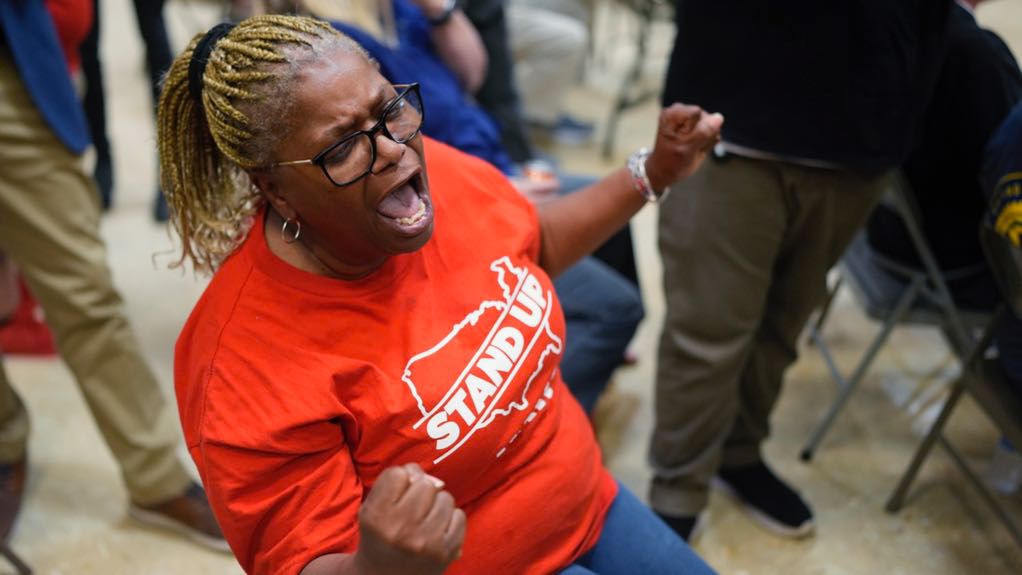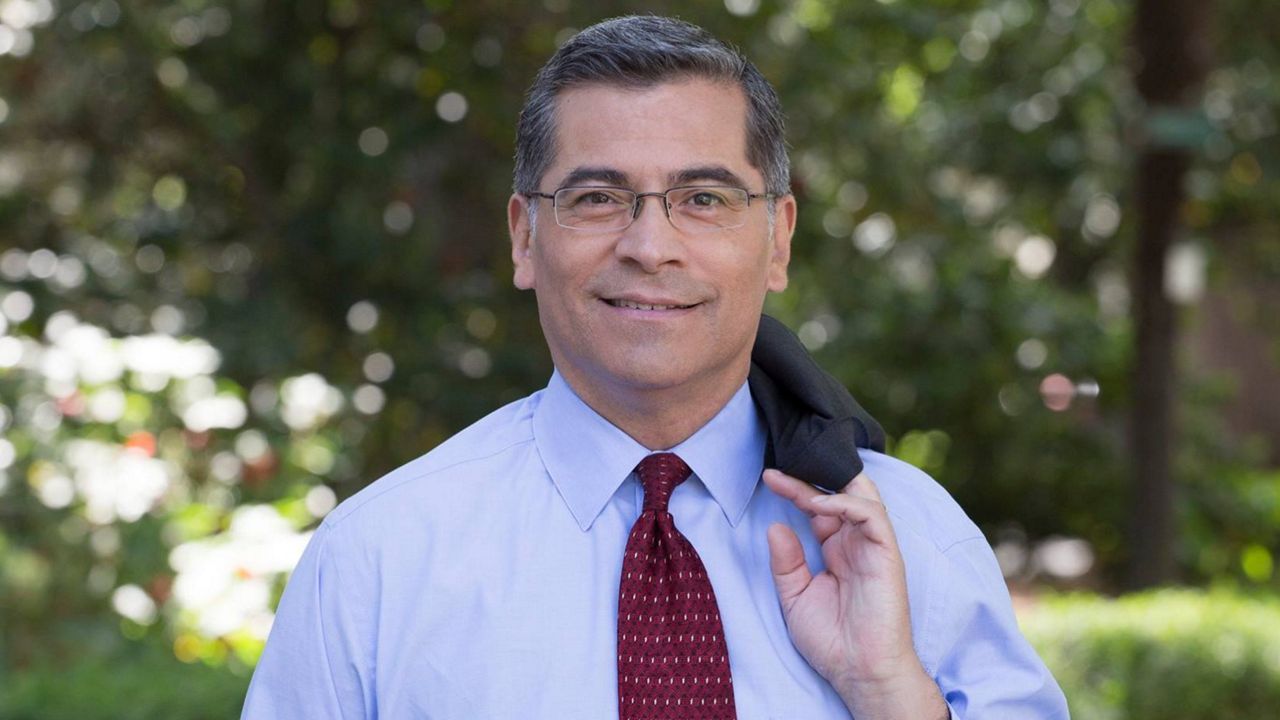Employees at a Volkswagen factory in Chattanooga, Tennessee, overwhelmingly voted to join the United Auto Workers union Friday in a historic first test of the UAW's renewed effort to organize nonunion factories.
The union wound up getting 2,628 votes, or 73% of the ballots cast, compared with only 985 who voted no in an election run by the National Labor Relations Board.
Both sides have five business days to file objections to the election, the NLRB said. If there are none, VW and the union must "begin bargaining in good faith."
Twice in recent years, workers at the Chattanooga plant have rejected union membership in plantwide votes. Most recently, they handed the UAW a narrow defeat in 2019 as federal prosecutors were breaking up a bribery-and-embezzlement scandal at the union.
But this time, they voted convincingly for the UAW, which is operating under new leadership directly elected by members for the first time and basking in a successful confrontation with Detroit's major automakers.
The union's pugnacious new president, Shawn Fain, was elected on a platform of cleaning up after the scandal and turning more confrontational with automakers. An emboldened Fain, backed by President Joe Biden, led the union in a series of strikes last fall against Detroit's automakers that resulted in lucrative new contracts.
The new contracts raised union wages by a substantial one-third, arming Fain and his organizers with enticing new offers to present to workers at Volkswagen and other companies.
Next up for a union vote are workers at Mercedes factories near Tuscalossa, Alabama, who will vote on UAW representation in May.
Michael Ream, who has worked assembling vehicles at the Chattanooga plant since 2019, said he voted for the union because people who build cars need to have a voice.
"We need to be treated fairly and not dictated to every second of our day," he said.
Ream said he was inspired by the contracts that the UAW won with Detroit automakers after going on strike last year. He was among dozens of workers, some wearing red shirts that said "Future UAW Member," who gathered Friday night at an electrical workers union hall near the VW factory.
Volkswagen thanked workers for voting and said 83.5% of the 4,300 production workers cast ballots in the election. The company said it was it is neutral on the issue of whether the plant should be unionized.
Six Southern governors, including Tennessee's Bill Lee, warned the workers in a joint statement this week that joining the UAW could cost them their jobs and threaten the region's economic progress.
But the overwhelming win is a warning to nonunion manufacturers, said Marick Masters, a business professor at Wayne State University in Detroit who studies the union.
"This is going to send a powerful message to all of those companies that the UAW is knocking at the door, and if they want to remain nonunion, they've got to step up their game," Masters said.
He expects other automakers to become more aggressive at the plants, and that anti-union politicians will step up their efforts to fight the union.
Shortly after the Detroit contracts were ratified, Volkswagen and other nonunion companies handed their workers big pay raises. Fain characterized those wage increases as the "UAW bump" and asserted that they were intended to keep the union out of the plants.
Last fall, Volkswagen raised production worker pay by 11%, lifting top base wages to $32.40 per hour, or just over $67,000 per year. The average production worker makes about $60,000 a year, excluding benefits and an attendance bonus. VW said its pay exceeds the median household income for the Chattanooga area, which was $54,480 last May, according to the U.S. Labor Department.
But under the UAW contracts, top production workers at GM, for instance, now earn $36 an hour, or about $75,000 a year excluding benefits and profit sharing, which ranged from $10,400 at Ford to $13,860 at Stellantis this year. By the end of the contract in 2028, top-scale GM workers would make over $89,000.
Isaac Meadows, an assembly line worker in Chattanooga who helped lead the union organizing drive at the 3.8 million-square-foot (353,353-square-meter) plant, which manufactures Atlas SUVs and the ID.4 electric vehicles, said he was confident the union would win.
"The excitement is really high right now. We've put a lot of work into it, a lot of face-to-face conversations with co-workers from our volunteer committee."
VW asserts that its factories are safer than the industry average, based on data reported to the Occupational Safety and Health Administration. And the company contends that it considers workers' preferences in scheduling. It noted that it recently agreed to change the day that third-shift workers start their week so that they have Fridays and Saturdays off.
But Meadows, whose job involves preparing vehicles for the assembly line after the auto bodies are painted, said the company adds overtime or sends workers home early whenever it wants.
"People are just kind of fed up with it," he said.
VW, he argued, doesn't report all injuries to the government, instead often blaming pre-existing conditions that a worker might have. The union has filed complaints of unfair labor practices, including allegations that the company barred workers from discussing unions during work time and restricted the distribution of union materials.
Volkswagen disputed the union's allegations and said it properly reports injuries and supports the workers' right to vote on union representation.
The VW plant will be the first the UAW has represented at a foreign-owned automaking plant in the South. It would not, however, be the first union auto assembly plant in the South. The UAW represents workers at two Ford assembly plants in Kentucky and two GM factories in Tennessee and Texas, as well as some heavy-truck manufacturing plants.
Also, more than three decades ago, the UAW was at a Volkswagen factory in New Stanton, Pennsylvania, east of Pittsburgh. VW closed the plant that made small cars in the late 1980s.








